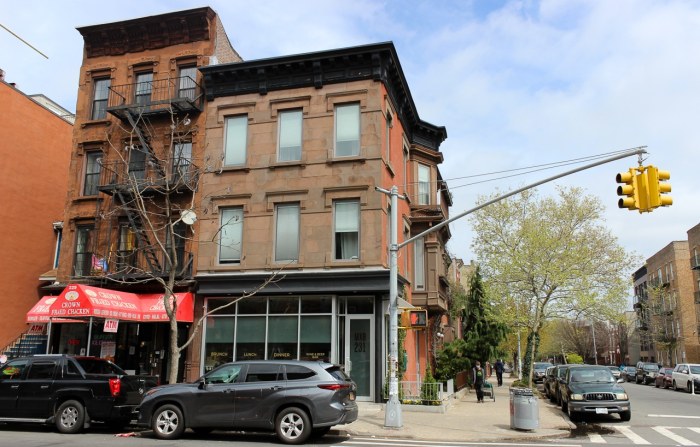These days, when social status is often
confused with fame or wealth, it’s hard to comprehend that just
a few decades ago, status, although always closely related to
wealth, had just as much to do with "connections,"
"breeding," "social standing," and knowing
which fork to use at the table.
For all of these reasons, Philip Barry’s "Holiday,"
now on stage at the Gallery Players, often seems a period piece,
albeit a very well-written one with clever and quick dialogue.
"Holiday" began life as a Broadway play, which opened
on Nov. 26, 1928 at the Plymouth Theatre and ran for 229 performances.
The show was directed by Arthur Hopkins and starred Dorothy Tree
as the wealthy young lady, Julia Seton; Ben Smith as Johnny Case,
her middle-class suitor; and Hope Williams as Julia’s unconventional
sister Linda, with Katherine Hepburn (prophetically) as her understudy.
Two years later, RKO turned the play into a film with Ann Harding
as Linda, Robert Ames as Case, and Mary Astor as Julia. But the
most famous incarnation of "Holiday" is the 1938 Columbia
film starring Katherine Hepburn as Linda and Cary Grant as Johnny.
Columbia chief Harry Cohn originally wanted Irene Dunne for the
role of Linda, but director George Cukor (who had directed Hepburn
in several films, including her first, "A Bill of Divorcement")
persuaded him to sign Hepburn for the role – a decision that
had mixed results.
Set in the Roaring Twenties, "Holiday" is about the
encounter of old, established New York wealth with middle-class
romanticism. Julia (Leigh Williams), having met Johnny (Brian
Letscher) while they were both on vacation at Lake Placid, brings
him home to meet her family: her father, Edward Seton (David
Crommett); her fiery and frustrated younger sister, Linda (Inga
Wilson); and her perpetually inebriated brother, Ned (Andy Waldschmidt).
Despite Johnny’s middle-class background, Julia’s father is willing,
if not exactly thrilled, to welcome him into the family, until
Johnny finds out he has earned $20,000 in the stock market and
prepares to retire to follow his dream of finding himself – while
he and Julia live off his new money and her old money.
Edward puts his foot, in its patent leather shoe, down.
Julia hesitates but clearly leans toward her father’s pragmatic
approach to life. Linda, obviously taken with her sister’s man,
urges more understanding and appreciation of Johnny’s carefree
ways. Ned is vaguely on Johnny’s side, when he can take his mind
off the bottle.
Dressed in Sean Sullivan’s divine gowns and tuxedos, the Seton’s
and their friends gracefully inhabit the well-heeled world so
well delineated by Harlan D. Penn’s rendering of the Seton home
– from the elegant third-floor parlor with its period furniture
to the nursery – which looks something like FAO Schwartz.
Williams sets the tone nicely with her cool, passionless portrayal
of the unflappable Julia. And Crommett makes Edward slightly
distasteful, but not so much that he’s at all hard to swallow.
This reviewer would like to have seen Wilson’s Linda a bit more
wanton and wild – something that might be hard after Hepburn’s
definitive performance. And as for Letscher – well, he’s really
OK. But then no one can fill Cary Grant’s shoes, and without
that persona, it’s hard to imagine what all the fuss is about
anyway.
Despite favorable reviews, the 1938 film was not a box-office
success – perhaps because by this time the country was deeply
mired in the Great Depression and could imagine no virtue in
a young man giving up profitable work to see the world. Although
"Holiday" was later to become a classic Hepburn/Grant
film, its immediate result was David Selznick’s refusal to consider
Hepburn for the role of Scarlett O’Hara in "Gone with the
Wind."
If "Holiday" was out-of-date as far back as 1938, how
much more so is it today when royalty so often carries on like
riffraff, and riffraff so frequently believes itself royalty?
Barry’s dialogue still sparkles and the elegance still dazzles.
But with the disintegration of all but wealth separating upper
class from lower class, even the greatness of "The Great
Gatsby" can be called into question.
In 2003, the roar may be gone from the Roaring Twenties and "Holiday"
more historical than hilarious, but at the Gallery Players, the
play is still a nice romp with capable, if not compelling, performances.
The Gallery Players production of "Holiday"
plays through Dec. 14, Thursdays through Saturdays at 8 pm, and
Sundays at 3 pm. Tickets are $15, $12 children under 12 and seniors.
The Gallery Players are located at 199 14th St. between Fourth
and Fifth avenues in Park Slope. For reservations, call (718)
595-0547.























